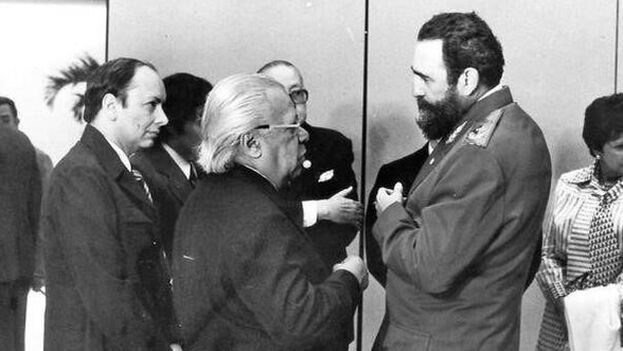Writers and artists under communism

Reader and imitator of Lenin, Fidel Castro implemented a regime of censorship and subordination of intellectuals to the State in Cuba.
By Xavier Carbonell (14ymedio)
HAVANA TIMES – “Down with the apolitical writers! Down with the supermen of literature!” “Their original sin: they are not authentically revolutionary.” “Outside the Revolution, no rights.”
The law of eternal return presides over the tension between the intellectuals and communism. Guevara repeats Castro, and Castro repeats Stalin or Mao. Hundreds of pages can be filled about espionage, shootings, accusations and complicity with “red-flag fascism”. This is demonstrated by the formidable Writers and Artists under Communism (Arzalia), by the Spanish journalist Manuel Florentín.
The vortex has its origin in Lenin, the historian Antonio Elorza explains in his prologue to the volume. In 1905, long before his troops assaulted the Winter Palace, the Bolshevik leader defined what he would do with writers and artists if the revolution materialized. In one of his libels, Lenin openly affirms that the problematic Russian intelligentsia should behave like another “wheel and screw” of the great social watchmaking. For the misfits, exile or bullets.
Since then, the communist regimes of any continent have followed the advice of Moscow. The intellectual must be an “engineer of the soul,” a servant of the State, which will pamper him with perks and recognitions, or he must not exist at all.
As a reader and imitator of Lenin, Fidel Castro dodged the “problem” of the intellectuals until 1961. By that time, the writers close to the “maximum leader” had already prepared the ground. The well-known “guilt” for not having fought in the Sierra Maestra – of which Guevara knew well how to take advantage – impregnated numerous poems and slogans: “We, the survivors, to whom do we owe survival?” the cultural commissioner Roberto Fernández Retamar wrote early in 1959.
The “great illusion” of the intellectuals was followed by the “great disenchantment,” says Florentín in the chapter of his book dedicated to Cuba. European revolutions failed or were corrupted; the Cub


